Conditions
Conditions We Treat Using Ketamine-Assisted Psychotherapy (KAP)
At Pacific TRIP, patients with the following conditions may be eligible for ketamine-assisted psychotherapy.
Major Depression
Major depression is a severe and persistent mood disorder characterized by feelings of sadness, hopelessness, and a lack of interest or pleasure in activities. It often affects a person’s thoughts, behaviors, and physical well-being, leading to significant impairment in daily functioning.
Mainstream treatment for major depression often involves a combination of psychotherapy, medication, and lifestyle changes. Psychotherapy, such as cognitive-behavioral therapy (CBT) or interpersonal therapy, helps individuals address negative thought patterns and develop coping strategies. Antidepressant medications, such as selective serotonin reuptake inhibitors (SSRIs) or serotonin-norepinephrine reuptake inhibitors (SNRIs), can also be prescribed to alleviate symptoms.
>> Explore clinical trials
>> Learn more about types of depression
Post-Traumatic Stress Disorder (PTSD)
PTSD is a mental health condition that develops in response to experiencing or witnessing a traumatic event. Symptoms include intrusive thoughts, nightmares, flashbacks, and heightened arousal, often causing significant distress and impairment in a person’s life.
Current PTSD treatment modalities may involve psychotherapy approaches like cognitive processing therapy (CPT) or eye movement desensitization and reprocessing (EMDR), which help individuals process traumatic memories. Medications like antidepressants or anti-anxiety drugs can be used to manage symptoms. Exposure therapy may also be used to gradually face and desensitize triggers associated with the traumatic event.
Anxiety Disorders
Anxiety disorders encompass a range of conditions, such as generalized anxiety disorder, panic disorder, and social anxiety disorder. They involve excessive and persistent feelings of worry, fear, or apprehension that can interfere with daily life.
Psychotherapy, particularly cognitive-behavioral therapy (CBT), is a common treatment for anxiety disorders. CBT helps individuals challenge and reframe anxious thoughts and behaviors. Medications like antidepressants or anti-anxiety drugs may be prescribed to manage symptoms. Relaxation techniques, mindfulness, and lifestyle adjustments can also be beneficial.
End-of-Life Existential Crisis
An end-of-life existential crisis refers to a profound questioning of one’s purpose, meaning, and existence as they approach the end of their life. It can involve feelings of introspection, searching for significance, and grappling with the concept of mortality.
Treatment for end-of-life existential crisis often involves supportive counseling and psychotherapy. Compassionate listening, exploration of values, meaning-making, and spiritual support can help individuals navigate their feelings of uncertainty and find a sense of peace and acceptance.
Palliative Care for Disease
Palliative care focuses on improving the quality of life for individuals with serious illnesses by addressing physical, emotional, and psychological symptoms. It aims to provide comfort, support, and relief from suffering while considering the individual’s preferences and values.
Care includes pain and symptom management, emotional and psychological support, and assistance with decision-making. A multidisciplinary team works together to address physical, emotional, and spiritual needs.
Drug Use Disorders
Drug use disorders, often referred to as substance abuse or addiction, involve a problematic pattern of using drugs that leads to significant impairment, health risks, and an inability to control drug use despite negative consequences.
At present, treatment for drug use disorders typically includes a combination of behavioral therapies, counseling, and support groups. Medications such as methadone, buprenorphine, or naltrexone may be used for opioid or alcohol addiction. Behavioral therapies like cognitive-behavioral therapy (CBT) and contingency management help individuals change their behaviors and develop healthy coping strategies.
Alcohol Use Disorders
Alcohol use disorders refer to a range of issues related to alcohol consumption, from mild to severe, where individuals have difficulty controlling their drinking, experience withdrawal symptoms when not drinking, and may continue to drink despite adverse effects on their health and life.
Treatment for alcohol use disorders involves behavioral therapies, counseling, and support groups. Medications like disulfiram, naltrexone, or acamprosate can help reduce alcohol cravings and dependence. Counseling helps individuals understand triggers and develop strategies for avoiding relapse.
Chronic Pain
Chronic pain is persistent and ongoing pain that lasts beyond the usual healing time. It can result from various medical conditions or injuries and can significantly impact a person’s physical and emotional well-being, often requiring comprehensive management and treatment.
The management of chronic pain may include a combination of treatments such as physical therapy, medications (pain relievers, anti-inflammatory drugs), cognitive-behavioral therapy (CBT), and relaxation techniques. Interventional procedures, nerve blocks, and alternative therapies like acupuncture and mindfulness meditation can also be part of the treatment plan.
Seeking Treatment
It is important to note that these explanations provided above are a general overview of each condition and may not encompass all possible details or variations. If you or someone you know is struggling with any of these conditions, it is important to seek professional help and support. Treatment approaches can vary based on individual needs, preferences, and the severity of the condition. Consulting with medical professionals and mental health experts is crucial for determining the most appropriate and effective treatment strategies.
Ketamine-Assisted Psychotherapy at Pacific TRIP Center
If you are considering ketamine-assisted psychotherapy, please contact us for more information.
Treatment Eligibility Requirements
- All patients must be live in California and be able to come in for an in-person office visit for an initial medical screening.
- If eligible, patients attend preparatory and integration psychotherapy sessions either online or in person as agreed upon by your treatment team.
- Dosing sessions are conducted in person at our Santa Monica facility.
- Patients must cover out-of-pocket ketamine cost of approximately $820 per dosing session. Prep and integration sessions are typically covered by insurance. Ketamine is administered as a clinical therapy and is not considered as a clinical trial.
Contact Us – Ketamine-Assisted Psychotherapy
Fill out the form below for more information.
Videos Related To Ketamine-Assisted Psychotherapy
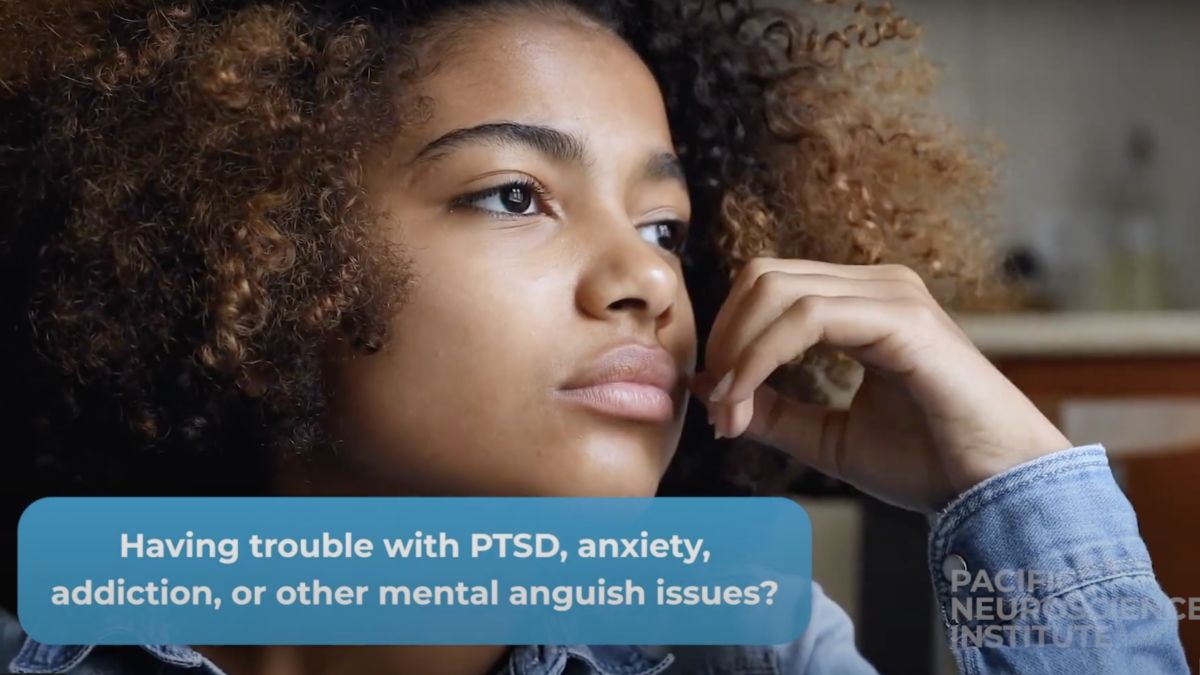 Psychedelic-Assisted Ketamine at Pacific Neuroscience Institute | 0:15 Second Spot 2023
Psychedelic-Assisted Ketamine at Pacific Neuroscience Institute | 0:15 Second Spot 2023
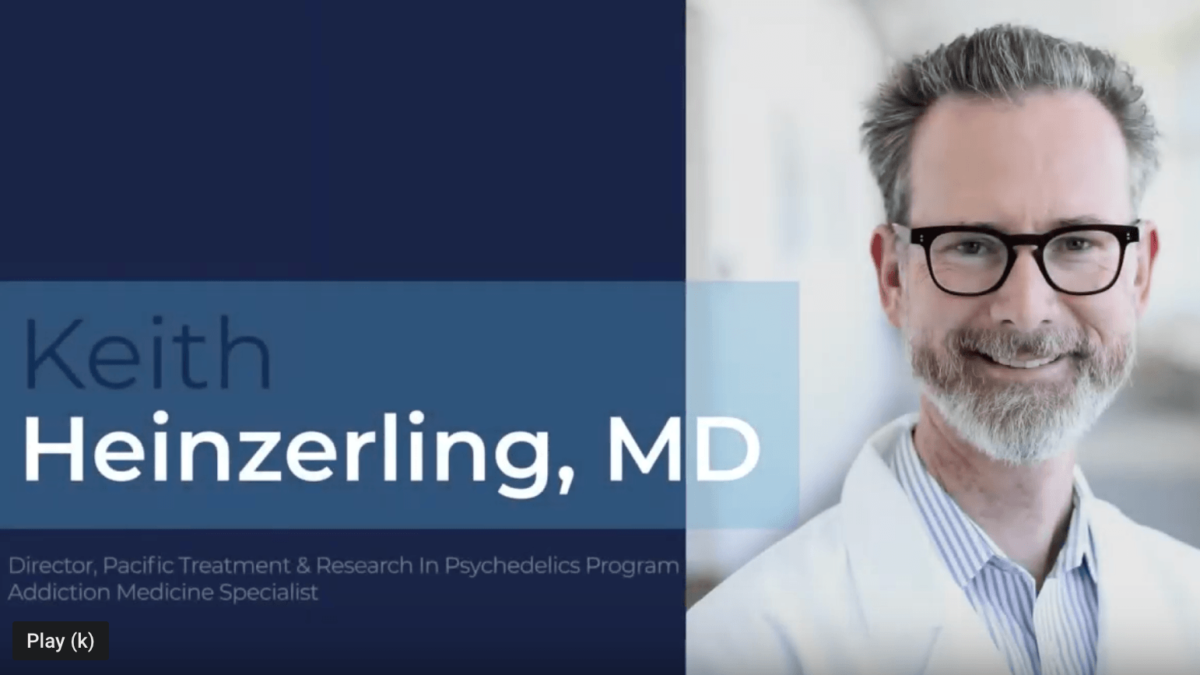 Meet Dr. Heinzerling
Dr. Heinzerling is the Director, Pacific Treatment & Research In Psychedelics Program; Internal Medicine – Addiction Medicine, Brain Health Center. He practices internal medicine and is an addiction medicine specialist…
Meet Dr. Heinzerling
Dr. Heinzerling is the Director, Pacific Treatment & Research In Psychedelics Program; Internal Medicine – Addiction Medicine, Brain Health Center. He practices internal medicine and is an addiction medicine specialist…
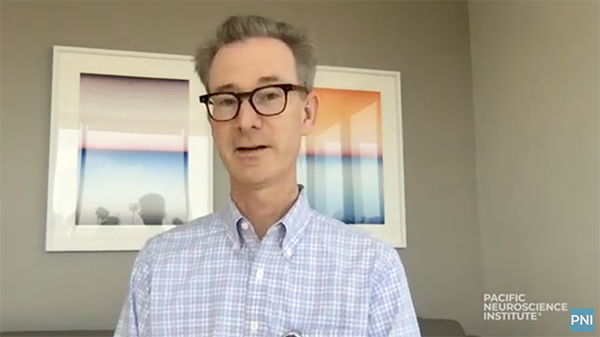 Psychedelic-Assisted Therapy with Ketamine at PNI
Using ketamine in a psychedelic-assisted approach, we treat people 16 years and older who are treatment-resistant or who wish to effectively tackle deep-rooted, unresolved trauma that has not been adequately…
Psychedelic-Assisted Therapy with Ketamine at PNI
Using ketamine in a psychedelic-assisted approach, we treat people 16 years and older who are treatment-resistant or who wish to effectively tackle deep-rooted, unresolved trauma that has not been adequately…
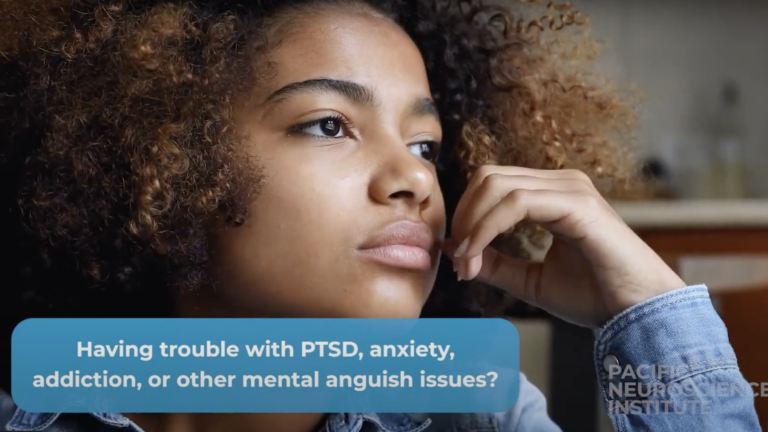
Psychedelic-Assisted Ketamine at Pacific Neuroscience Institute | 0:15 Second Spot 2023
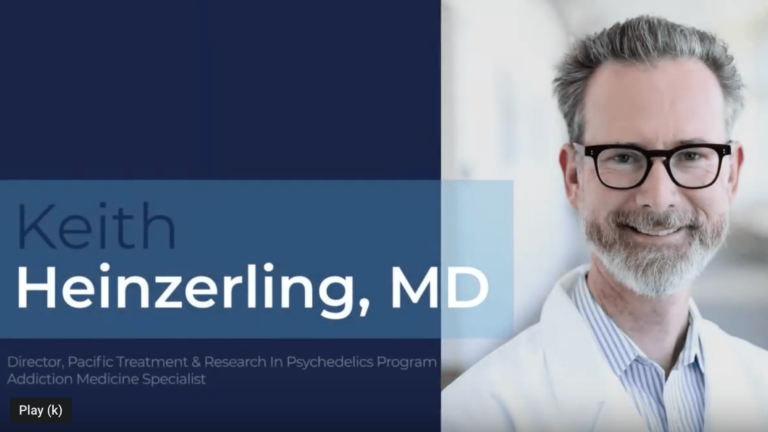
Meet Dr. Heinzerling



